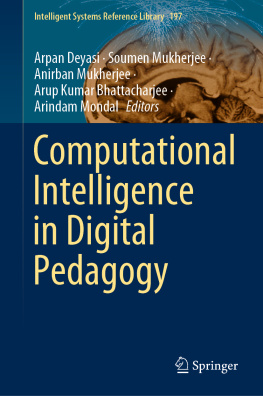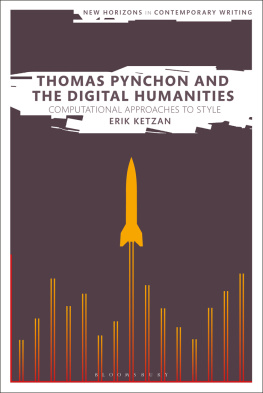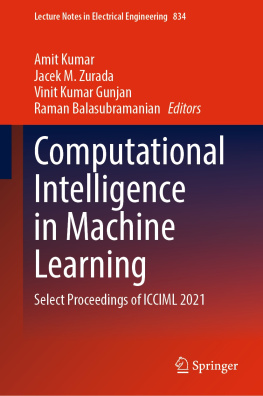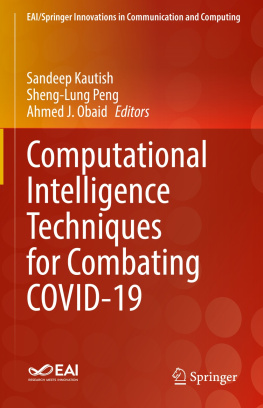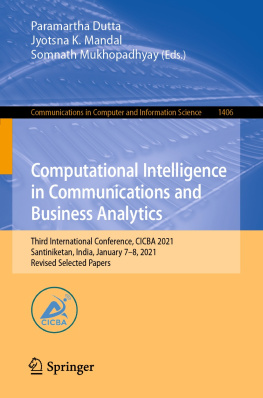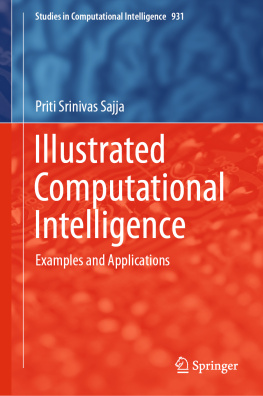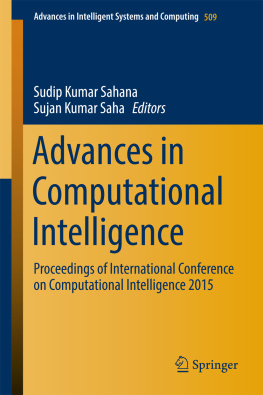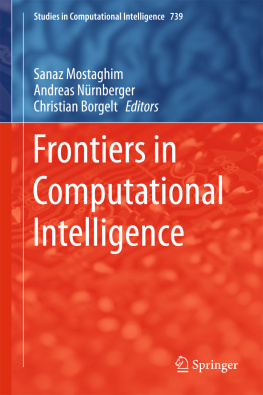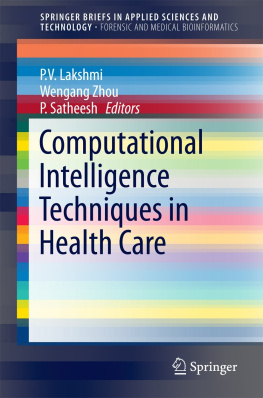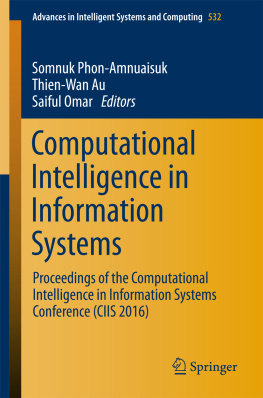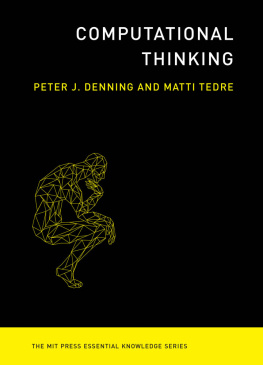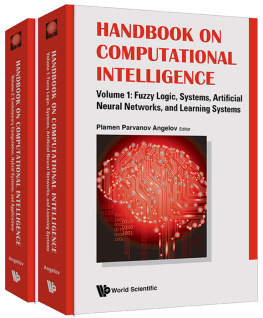Arpan Deyasi - Computational Intelligence in Digital Pedagogy
Here you can read online Arpan Deyasi - Computational Intelligence in Digital Pedagogy full text of the book (entire story) in english for free. Download pdf and epub, get meaning, cover and reviews about this ebook. publisher: Springer Singapore, genre: Children. Description of the work, (preface) as well as reviews are available. Best literature library LitArk.com created for fans of good reading and offers a wide selection of genres:
Romance novel
Science fiction
Adventure
Detective
Science
History
Home and family
Prose
Art
Politics
Computer
Non-fiction
Religion
Business
Children
Humor
Choose a favorite category and find really read worthwhile books. Enjoy immersion in the world of imagination, feel the emotions of the characters or learn something new for yourself, make an fascinating discovery.
- Book:Computational Intelligence in Digital Pedagogy
- Author:
- Publisher:Springer Singapore
- Genre:
- Rating:4 / 5
- Favourites:Add to favourites
- Your mark:
- 80
- 1
- 2
- 3
- 4
- 5
Computational Intelligence in Digital Pedagogy: summary, description and annotation
We offer to read an annotation, description, summary or preface (depends on what the author of the book "Computational Intelligence in Digital Pedagogy" wrote himself). If you haven't found the necessary information about the book — write in the comments, we will try to find it.
Computational Intelligence in Digital Pedagogy — read online for free the complete book (whole text) full work
Below is the text of the book, divided by pages. System saving the place of the last page read, allows you to conveniently read the book "Computational Intelligence in Digital Pedagogy" online for free, without having to search again every time where you left off. Put a bookmark, and you can go to the page where you finished reading at any time.
Font size:
Interval:
Bookmark:
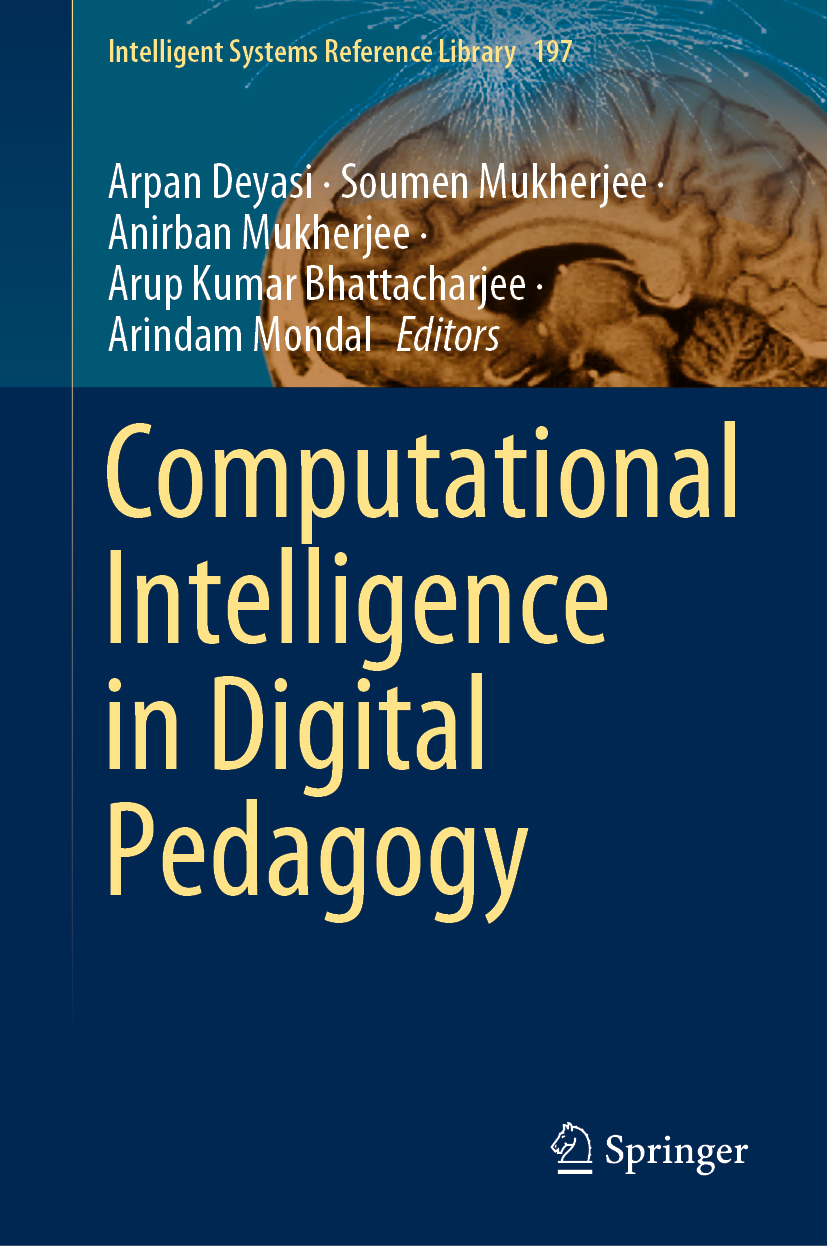
The aim of this series is to publish a Reference Library, including novel advances and developments in all aspects of Intelligent Systems in an easily accessible and well structured form. The series includes reference works, handbooks, compendia, textbooks, well-structured monographs, dictionaries, and encyclopedias. It contains well integrated knowledge and current information in the field of Intelligent Systems. The series covers the theory, applications, and design methods of Intelligent Systems. Virtually all disciplines such as engineering, computer science, avionics, business, e-commerce, environment, healthcare, physics and life science are included. The list of topics spans all the areas of modern intelligent systems such as: Ambient intelligence, Computational intelligence, Social intelligence, Computational neuroscience, Artificial life, Virtual society, Cognitive systems, DNA and immunity-based systems, e-Learning and teaching, Human-centred computing and Machine ethics, Intelligent control, Intelligent data analysis, Knowledge-based paradigms, Knowledge management, Intelligent agents, Intelligent decision making, Intelligent network security, Interactive entertainment, Learning paradigms, Recommender systems, Robotics and Mechatronics including human-machine teaming, Self-organizing and adaptive systems, Soft computing including Neural systems, Fuzzy systems, Evolutionary computing and the Fusion of these paradigms, Perception and Vision, Web intelligence and Multimedia.
Indexed by SCOPUS, DBLP, zbMATH, SCImago.
All books published in the series are submitted for consideration in Web of Science.
More information about this series at http://www.springer.com/series/8578

This Springer imprint is published by the registered company Springer Nature Singapore Pte Ltd.
The registered company address is: 152 Beach Road, #21-01/04 Gateway East, Singapore 189721, Singapore
Anirban Mukherjee dedicates to
his mother Sunanda, wife Attreyee and son Ritam
Arpan Deyasi dedicates to
The teachers who ignites the passion for teaching
Soumen Mukherjee dedicates to
his father, mother, wife Koyal and eight-year-old son Aarush
Arup Kumar Bhattacharjee dedicates to
his parents, Sandhya and Mrityunjoy Bhattacharjee,
for always being there with him
Arindam Mondal dedicates to
his mother, wife and son for always loving and supporting him
If the mountain will not come to Muhammad, then Muhammad must go to the mountain, Francis Bacon writes in his essays in the year 1625. Quoting this, Swami Vivekananda introduces Maharaja of Mysore to a new idea in a letter written to him in the year 1894 that If the poor boy cannot come to education, education must go to him. Not leaving at that Vivekananda also suggests a technique though rudimentary yet befitting its time. In the wake of Digital Revolution, taking the education to the doorstep of one and all with ease is a dream coming true for every educationalist.
Education with adroit promptness has at all times incorporated the then-emerging technologies in appropriate measure for its promotion and propagation. We are now in the era of data science, during which time it has become both trend and trade for a mass of apparently insignificant data to be subjected to the lens of algorithmic scrutiny in the hope of revealing meaningful insights into the past, present and/or future. The seemingly unobjective targets that have suffered so long with subjective bias are now, with improved precision, being rendered as estimable and thereby actionable metric. Such a reality is presented before us by a plethora of tools and techniques that have been developed over a period of time under the umbrella of soft computing which in its ever-evolving state is being broadly addressed as computational intelligence.
Computational intelligence has found application in every line of business that can promise to quantify facts and figures. Digital pedagogy being one such has been chosen as the theme of this compilation in which a lot of practitioners and researchers in the field of education have contributed their thought-provoking articles, their findings that can change the way we are practicing pedagogy, and their suggestions for the improvement of practices in vogue keeping intact the principle and philosophy of pedagogy. The time is opportune for such a publication to reach the eager educator to benefit.
Font size:
Interval:
Bookmark:
Similar books «Computational Intelligence in Digital Pedagogy»
Look at similar books to Computational Intelligence in Digital Pedagogy. We have selected literature similar in name and meaning in the hope of providing readers with more options to find new, interesting, not yet read works.
Discussion, reviews of the book Computational Intelligence in Digital Pedagogy and just readers' own opinions. Leave your comments, write what you think about the work, its meaning or the main characters. Specify what exactly you liked and what you didn't like, and why you think so.

